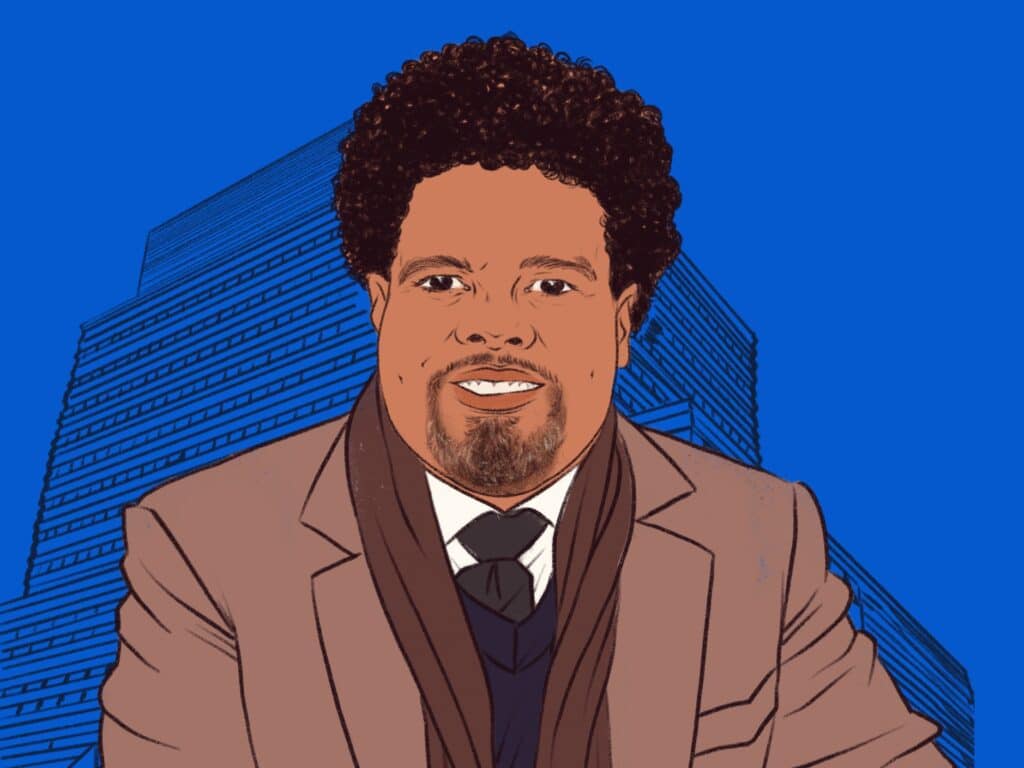A central focus of Dr. Darrick Hamilton’s life’s work has been to build a human rights economy, which centers economic policies and practices that contribute to the realization of human rights for all, rather than prioritizing profit or growth alone.
His efforts have generated national and international recognition, including being named by Time Magazine as one of 18 “Closers” of the racial wealth gap and as the New Chief Economist by the American Federation of Labor and Congress of Industrial Organizations. Among the experiences that have driven Hamilton, one stands out: his early schooling. As a student at Brooklyn Friends School, he not only benefited from a rigorous education and acquired a love of learning—he also absorbed the school’s Quaker values.
“They were intentional in providing a social context and a framework of ethics,” says Hamilton, an economist and founding director of the Institute on Race, Power and Political Economy at the New School. “And their philosophy is one of self-awareness and how you belong to the larger community.”
“And their philosophy is one of self-awareness and how you belong to the larger community.”
The community Hamilton now serves is made up of people who struggle to build intergenerational wealth. And having grown up in the ‘80s in New York City’s Bed–Stuy neighborhood amid what he calls a “scenario of bleakness,” it’s a community he can relate to.
Hamilton’s love of learning and his commitment to service come together in the institute he founded. This institute harnesses research to develop policy solutions to create a people-centered economy based on equality that increases—rather than restricts—people’s opportunities.
For Hamilton, doing this from within academia has advantages. “The norm of our domain is truth seeking, which is grounded by rigor,” he explains. “But what makes us different from our academic colleagues is that rigor can be limiting if you don’t have a goal—and for us that’s a society that promotes people and the environments in which we live.”
“Rigor can be limiting if you don’t have a goal—and for us that’s a society that promotes people and the environments in which we live.”
And while many organizations focus on increasing prosperity by seeking to boost people’s incomes, Hamilton believes that this alone is insufficient. Wealth, he argues, is equally important, since wealth can be used to pay for college tuition, to buy a home, or to start a business—investments that transform lives. “What really matters is what wealth can do for you,” he says.
“What really matters is what wealth can do for you.”
The institute’s flagship initiative, the Baby Bonds policy proposal, is a good example. The idea is that children in families with lower incomes would receive up to $50,000 in a trust by the time they reach adulthood. Investing in future generations would reduce the multi-generational nature of poverty, improve financial stability, and promote community wealth building.
Other key poverty elimination proposals the institute has developed include guaranteed income through cash transfers, tax policy designed around multi-generational family social and economic success, and an industrial policy and climate justice framework that prioritizes natural resources, people, and the environments they live in.
For The Kresge Foundation, which in 2024 made a $1.2 million grant to the institute, Hamilton’s approach aligns closely with the focus and goals of the foundation’s Human Services Program. The program works to advance intergenerational wealth and increase equity throughout America’s cities. The foundation’s Detroit, Arts & Culture, and Health teams have also supported Hamilton’s work.
For Hamilton, when pursuing those goals gets tough, he turns to personal sources of strength to keep him going. “I get energy from being around people,” he says. “And, however dismal the time becomes, I have solace in purpose. At this point in my life, I’m clear on purpose and I’m afforded an opportunity to fulfil my purpose—that makes me happy.”




